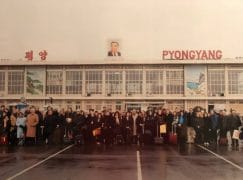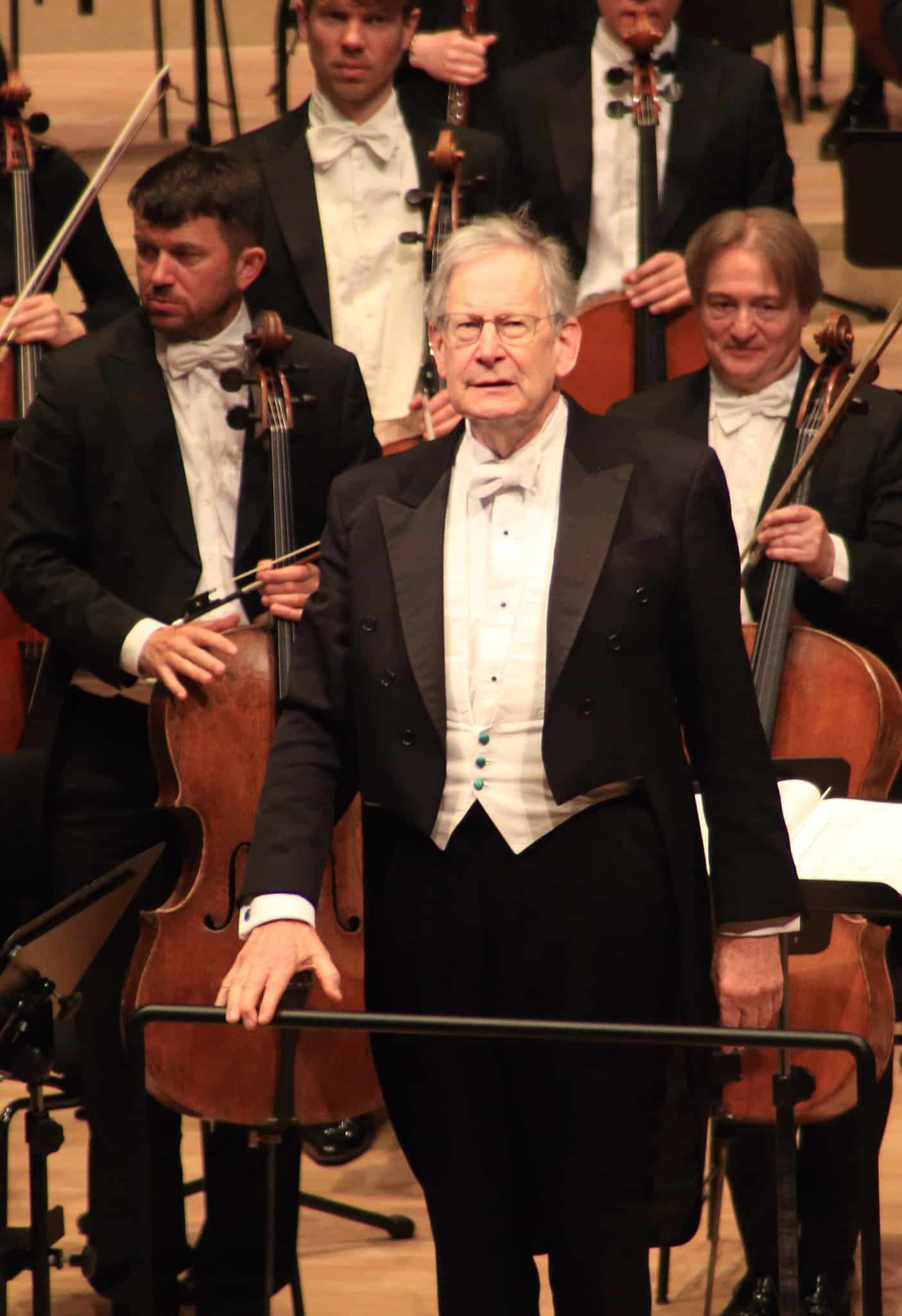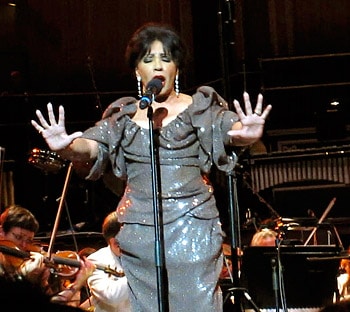Philly chief defends North Korea visit
OrchestrasMatías Tarnopolsky, president of the Philadelphia Orchestra, has written an op-ed in the NY Times arguing that orchestral music can achieve breakthroughs in cultural diplomacy.
Historically speaking there is a case to be made – certainly in respect of Philly’s first trip to China 50 years ago. But Tarnopolsky choose to focus on the New York Philharmonic’s 2008 jaunt to North Korea, which almost everyone regards as a pointless exercise – or worse. The citizens of Pyongyang starved while the New York musicians were feted at banquets. Nobody in North Korea saw any improvements to their lives. All that endured were a few snaps by the American musicians for their family albums.
Here‘s Tarnopolsky’s counter-claim:
Can music pull the world back from the brink? In early 2008, I was working on the New York Philharmonic’s concert in Pyongyang, a project conceived to enhance the atmosphere of the six-party talks on the denuclearization of North Korea. At the time, observers and even many of the musicians themselves questioned whether any potential good would come of the effort. But for those present — a delegation of some 400 Americans including the orchestra, supporters and the largest contingent of foreign journalists to visit North Korea since Madeleine Albright’s 2000 visit as secretary of state — it turned out to be a profoundly inspiring journey.
What happened in Pyongyang, at minimum, was a group of Americans and North Koreans, citizens of sworn enemies, sat in a room together for a couple of hours and listened to Dvorak, Gershwin and, as an encore, the Korean folk song “Arirang,” which is part of the soul of every Korean on either side of the Demilitarized Zone and caused many members of the audience to tear up.
But it was so much more than that. The emotion of that shared occasion in the concert hall is forever etched in my mind, and, I am sure, in the memory of all who were there. Diplomatically, politically and socially, we were far apart, but because of the music, we were humanized for each other, even for a short time. That is real progress.
How, really?






I wouldn’t be so dismissive of the attempt at cultural diplomacy in regards to the NYP’s 2008 trip to Pyongyang. Let’s leave it to political analysts and historians to determine if it was a failure or success. 20/20 hindsight is easy. What mattered most was that diplomatic efforts were made—the alternative was to do nothing. The trip may not have yielded any dramatic or obvious shifts in the political arena, but on a more subtle level there may have been some change—something that we may never know, but have to put faith in diplomatic efforts. I completely agree with Mr. Tarnopolsky, but maybe you had to be there to understand his points? I was an orchestra member on that tour and as Matias mentioned, it was clearly evident—at least in that moment—hearts were warmed and a sense of shared humanity pervaded within the concert hall. Many more hearts may have been touched with the live broadcast of the concert within North Korea, which was a precondition to the tour. Beyond the concert, there was the gifting of music and musical supplies to the Pyongyang Orchestra, masterclasses for local music students, and Maestro Maazel led a rehearsal with the Pyongyang Orchestra. Whether or not this particular event changed the world of politics, I believe in the power of music to bring people together and that potential should never be dismissed.
Of course, one should not underestimate the power of music, but neither should one overestimate it, as this guy obviously has done, and how! Barenboim has valiantly tried this with his Divan band and yet, well, just turn on your TV set.
Such charming naiveté. I’ll wager that every Pyongyang audience member was a fully-vetted party stalwart and that the cited tears, worthy of a crocodile, were orchestrated to a fault, this being North Korea after all.
When I read it this morning, I could not believe my eyes, that the NYT published such platitudinous drivel.
In terms of actual content, I learned less about history than about the life of Mr. Tarnopolsky (who was born in Buenos Aires he needs to tell us).
It was less a look back on cultural diplomacy than a self-promotional retelling of his Forrest-Gump-like career: look at me at the CSO getting involved in the Middle East, now look at me with the NY Phil in the middle of North Korea, and look at me now, President of the Philadelphia Orchestra hobnobbing with Chinese officials sharing confidences with me and a private chuckle.
Before accomplishing all that on a global scale, I have no doubt he already transformed the lives of those in the neighboring inner-city communities of Chicago, New York, and Philadelphia.
Which I await with bated breath in his next NYT op-ed piece.
It was also after his arrival in Philly that Yannick and the Orchestra increasingly wokified their profile.
“The citizens of Pyongyang starved while the New York musicians were feted at banquets.”
Amen.
They ate off the sweat tears blood of North Koreans who live in such dire circumstances that, literally, every grain of rice going into the bowl of a New York Philharmonic musician was one less grain of rice going into the stomach of a North Korean.
I don’t know what financial arrangement the NY Phil made with North Korea, but you can bet every American penny went into the nuclear program.
The North Korean propaganda machine won: To this day, the West still writes about it with misty eyes in the pages of the New York Times, meanwhile, one wonders how many of the masses of young North Koreans alive at the time of that concert is still alive today, from Covid, from starvation, from murder ordered by many of the elites in the audience that day.
I think his comments are quite correct and I applaud him for writing this. The U.S. government sent Benny Goodman, Dave Brubeck, Louis Armstrong and many others to Russia, during the Cold War. Nothing wrong with the Philadelphia Orchestra now playing in Korea.
Maybe if they had played a concert open to everyone in a 10,000-seat arena, and played something a little more substantial than American in Paris and New World. Shostakovich 4 or 10, Ein Heldenleben, or Mahler 6, just a few examples. Or maybe Copland 3. Or something by a South Korean composer? It was little more than an inoffensive pops concert played for a hand-select group of the Pyongyang elite.
Mr. Tarnopolsky’s explanation is extremely naive and a very outdated viewpoint on the power of orchestral music achieving breakthroughs in diplomacy. The world has changed dramatically since that New York Philharmonic concert in Pyongyang in 2008.
Soft power through Western classical music as a means to win hearts and minds and mend fences with adversaries was a very powerful tool in the mid 20th century up until the early 21st century. Sadly, its impact as a tool of diplomacy has diminished to near insignificance in our world now, in tandem with the diminished standing of western classical music, the image of the United States and most of the entire Western world.
In order to win over hearts and minds and to change perspectives, the leaders an public of the receiving country need to have sensitivity for the arts and music to start with and a realisation that the arts are a force for good in our world. That is no longer the case in nearly every country, east and west. Many now see Western classical music being brought to them, as a form of western colonialism, arrogance and elitism. I don’t agree, but that is how it is perceived nowadays and perception is the reality.
Just looking at the U.S., when Van Cliburn won the Tchaikovsky Competition in 1958, upon his return he was a national hero and was feted with a ticker-tape parade down Broadway with thousands of New Yorkers lining the streets to congratulate the 23 year old pianist.
In today’s world few have any interest if an American would win a major international classical music piano competition and now he or she would only return to the congratulations of their close family, friends and teachers. There is no political or mass public interest whatsoever. So, to assume that taking close to 200 people and heavy orchestra instruments to far flung destinations will change global politics, stop wars, free hostages or create alliances is terribly outdated and naive thinking. At best it will be ignored and at worst it will be rightfully criticised for contributing to global warming through a very large carbon footprint caused by such unnecessary travelling.
In today’s world, dispatching a small athletic team for a match of basketball, handball, table tennis or tennis would make a much bigger impact, attract the attention of both local citizens and their leaders and contribute to a smaller carbon footprint than touring a full classical orchestra, with administrative staff, donors and local politicians would ever do. Unfortunately, those days are over forever.
the NYP visit to NK was an effort from the musical society toward world peace, in my opinion, however little success it brought about.
“(A) profoundly inspiring journey.” This sounds like Vice President Henry Wallace after visiting the Soviet gulag camp at Magadan in 1944.
Amazing publicity is what it is.
Never mind the absolute misery of life in North Korea. Forget the extra military and planning expenses.
Entertain the handful of bloated officials in North Korea with some pleasant tunes: “Music brings us together.” No, Donald Trump, whether you like him or not, was far more successful in taming KJI.
It’s nice to know the consolidated wealth fit into one space large enough to listen to an American orchestra—might just as well have hand-delivered Tiffany diamonds and Marc Jacobs totes as arrival offerings.
It didn’t work with Russia – how on earth should it work with North Korea?